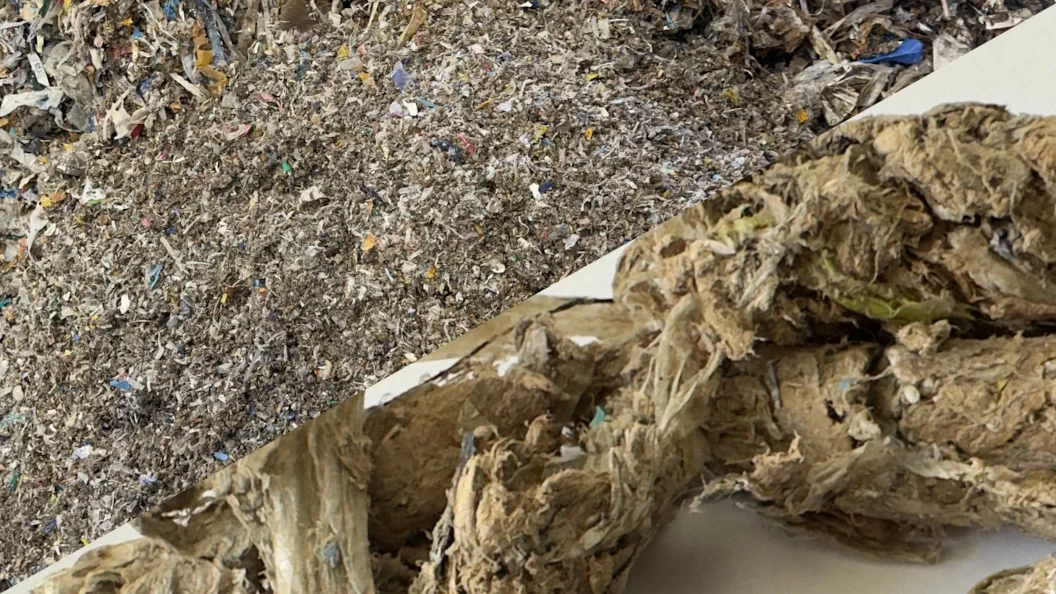Cost reduction with new reject pelletiser
The German paper industry produces around 2.5 million tons of rejects and sludge every year, which must be disposed of. Some factories can burn it in their own power plant if this is suitable for RDF. However, depending on the water content, this requires additional firing, which makes thermal utilization more expensive. On average, however, they are transported 170 kilometers for disposal. The costs are typically between €80 and €140 per ton.
Two companies in Europe and Asia have independently developed presses for mixed plastic waste and have been operating them successfully for many years. The plastic waste can be sent for thermal recycling, achieving calorific values that far exceed the amount of electricity used.
Both have independently developed the equipment to dewater the typical waste from paper mills and form granulate or pellets from the plastics.
During dehydration, the rejects reach a temperature between 70°C and 95°C, so that most microorganisms are killed - similar to pasteurization of the rejects. Due to the low moisture content, the rejects are no longer colonized by microorganisms. Unpleasant odors are thus eliminated.
The lecture will present the results of the scientific monitoring of the market launch. A large number of samples have already been processed on the pilot plants in Asia and Europe. A large number of samples have already been processed at the pilot plants in Asia and Europe. The samples were analyzed before and after processing. The increase in calorific value and other important characteristics are presented for a cross-section of different rejects and sludges, and the feasibility of the process is demonstrated. In particular, the increase in calorific value to the level of lignite and hard coal shows that paper mills can not only elegantly solve a major waste problem, but also significantly reduce the need for fossil fuels.
